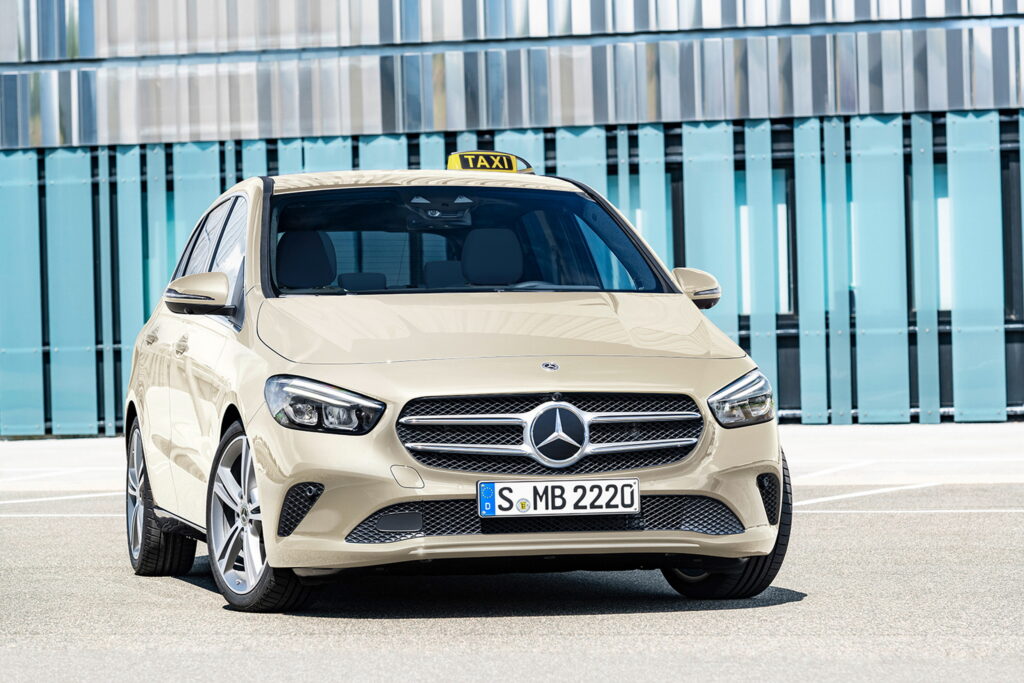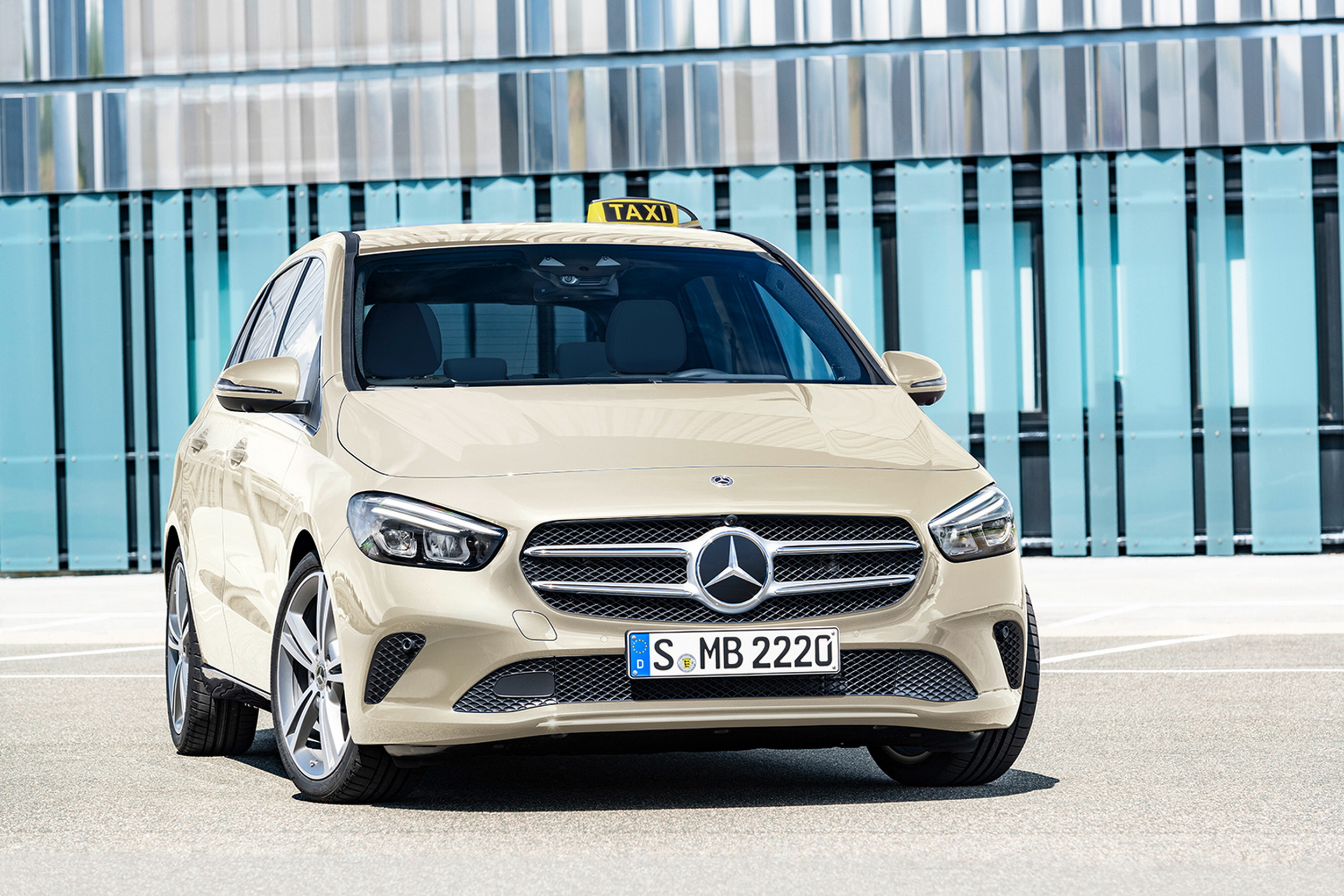- Mercedes’ taxi sales in Germany dropped 71% from January to August compared to 2023.
- The brand’s market share has plummeted from 52% in 2019 to just 18% today.
- The automaker is not interested in offering factory-conversions as the taxi market is too small.
In many European countries, including Germany, the stereotypical image of a taxi has long been a Mercedes-Benz sedan. However, this perception has drastically shifted in recent years, with Mercedes’ dominance in the taxi market quickly fading. Yet, the steep decline in sales seems to be a strategic decision rather than a mere accident.
The collapse in Mercedes‘ taxi business is striking when you examine the numbers. In Germany, the brand’s taxi sales plummeted by 71 percent between January and August 2024 (497 units), compared to the same period in 2023 (1,730 units).
More: NYC’s Ford Crown Vic Cabs Face Extinction As Last Two Taxis Set To Age Out Of Fleet
According to market research analysis data provided to the German newspaper Handelsblatt, the 497 Mercedes taxis sold in the first eight months of 2024 included 127 units of the E-Class (a 90 percent drop) and just a single unit of the B-Class (a 95 percent drop). The Vito minivan was the only model that somewhat retained its popularity.
Overall, Mercedes’ share of the German taxi market shrank from a dominant 52 percent in 2019 to 38 percent in 2023. This year, the data suggests it will fall to just 13 percent, as more taxi operators turn to other brands.
Volkswagen and Toyota overtake Mercedes
The new leader in the German taxi market is Volkswagen, primarily due to the success of its Touran and Caddy vans. Even Toyota now sells more taxis than Mercedes in Germany, with special versions of the Corolla and the RAV4.

Just a single new Mercedes B-Class taxi was registered in Germany between January and August 2024
In 1896, Daimler invented the modern taxi by being the first company to equip a motor carriage with a taximeter. Until the late 2010s, Mercedes proudly emphasized its “traditional partnership with the taxi industry.” So what triggered the dramatic decline in market share? The answer lies in a strategic shift regarding taxi conversions.
A strategic shift in Mercedes’ approach
Last year, Mercedes CEO Ola Källenius announced that the brand would cease offering factory-converted taxi models and would no longer provide special discounts to taxi operators. He explained: “After extensive testing and market analysis, we determined that sales and installation rates in passenger transport are not sustainable enough for a viable factory solution.”
A Mercedes manager told Handelsblatt that taxis “do not fit the luxury standards” of the brand, adding that rivals BMW and Audi also avoid this segment. However, a major factor is the size of the taxi market in Germany. Annually, only 6,000 to 7,000 new taxis are registered, a small figure compared to the 2.8 million new passenger vehicles sold.
Mercedes will continue offering options for limousine services based on the E-Class, but future taxi conversions will need to be handled by third-party companies, making them less appealing to operators from a financial perspective.
Despite the relatively small market, some argue that taxis can help brands boost sales by offering customers a chance to experience their vehicles. It seems Mercedes no longer sees the value in that strategy.












